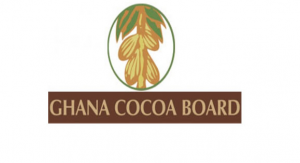African countries strengthened their ability to recover funds held offshore, directly boosting national tax revenues, according to the latest Tax Transparency in Africa report released Wednesday. The trend signals continuing progress in the fight against illicit fund flows out of Africa, worth an estimated $50 billion each year.
The Global Forum for Transparency and Exchange of Information for Tax Purposes, the African Union, and the African Tax Administration Forum produced the report, in close partnership with the African Development Bank. The first edition of the report was published in 2019.
The report provides comparable tax transparency statistics to aid decision-makers to address illicit fund flows. Thirty-four countries completed the survey for the 2021 edition, including six non-members of the Global Forum: Angola, Democratic Republic of Congo, Sierra Leone, Gambia, Zambia, and Zimbabwe. It noted progress on two core tax transparency pillars: political awareness and commitment, and capacity to advance tax transparency and the exchange of information.
Publication of the report is a timely contribution to the dialogue on tax transparency in Africa as it highlights the progress made by African countries in benefitting from the global improvements in tax transparency in their domestic resource mobilization efforts,” the report’s preface notes.
“The Global Forum and its partners will continue to support African countries to address outstanding issues and help them close the gap with other jurisdictions,” said head of the Global Forum Secretariat Zayda Manatta, in a review of findings during the launch event.
María José Garde, Chair of the Global Forum, also made remarks, along with Pascal Saint Amans, Director, Centre for Tax Policy and Administration; and Githii Mburu Chair of the Africa Initiative and Commissioner General of the Kenya Revenue Authority.
In spite of disruptions caused by the Covid-19 crisis, there have been advances in transparency. Mali joined the Global Forum, bringing to 32 the number of African members. Eswatini became a signatory to the Yaoundé Declaration(link is external) on fighting illicit financial flows in Africa, joining 29 other African countries plus the African Union Commission. In 2020, African countries for the first time sent more exchange of information requests than they received.
Fighting these illicit transactions is at the heart of the partnership between the African Development Bank and the Global Forum. Cooperation extends beyond production of the report to Bank operations, such as the Resource Mobilization and Reform Effectiveness Support Program in Senegal.
Carina Sugden, Chief Governance Officer at the African Development Bank, said these issues received special focus in the Bank’s recently approved Strategy for Economic Governance in Africa, which outlines the priorities for the Bank’s governance work on the continent over the coming five years.
“Tax Transparency in Africa highlights the importance of international tax cooperation to combat corruption, tax evasion, money laundering, fraud, base erosion, and profit shifting, and illicit enrichment. The African Development Bank is committed to working with the Global Forum, the African Tax Administration Forum, and other partners to tackle these issues.”
She said the tax transparency agenda held significant implications for domestic resource mobilization, the success of the Sustainable Development Goals, the African Union’s Agenda 2063, and the Bank’s High Five priority areas.
The Global Forum has a dedicated secretariat based in the OECD’s Centre for Tax Policy and Administration.
The African Development Bank, an observer to the Global Forum since 2014, promotes African tax transparency through support to institutions and non-state actors in its regional member countries and by strengthening international cooperation to eliminate illicit financial flows.







